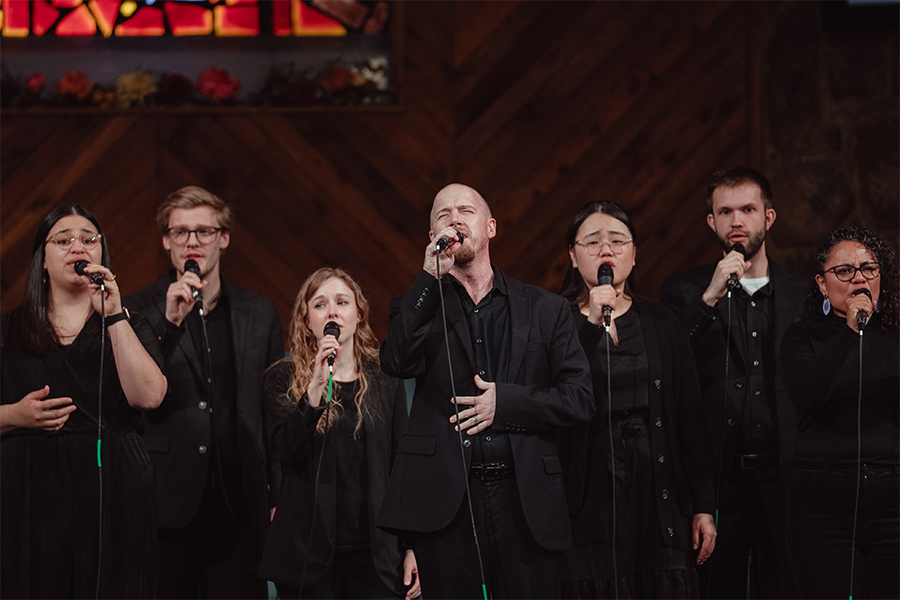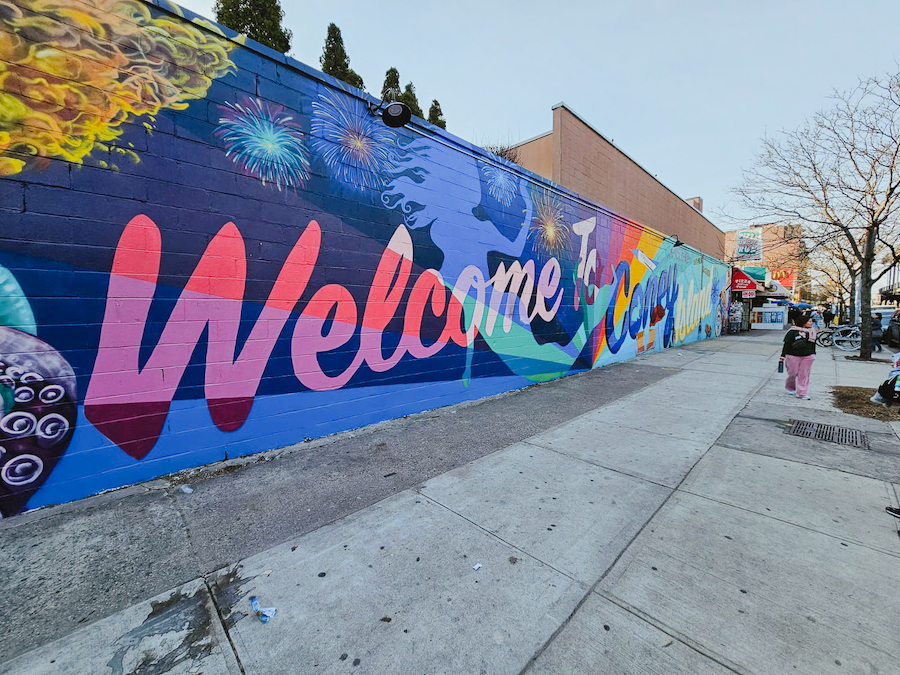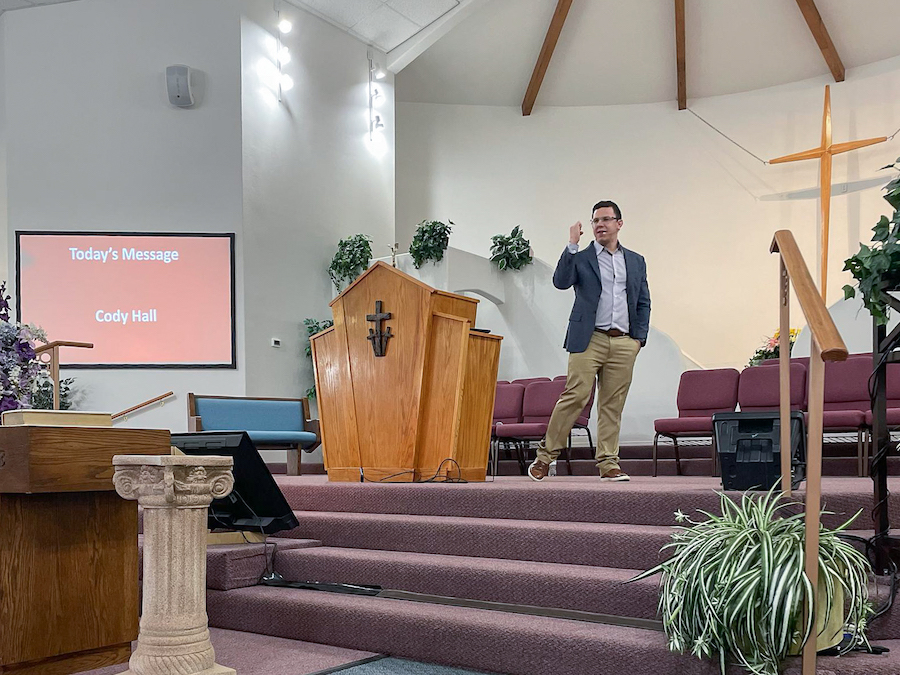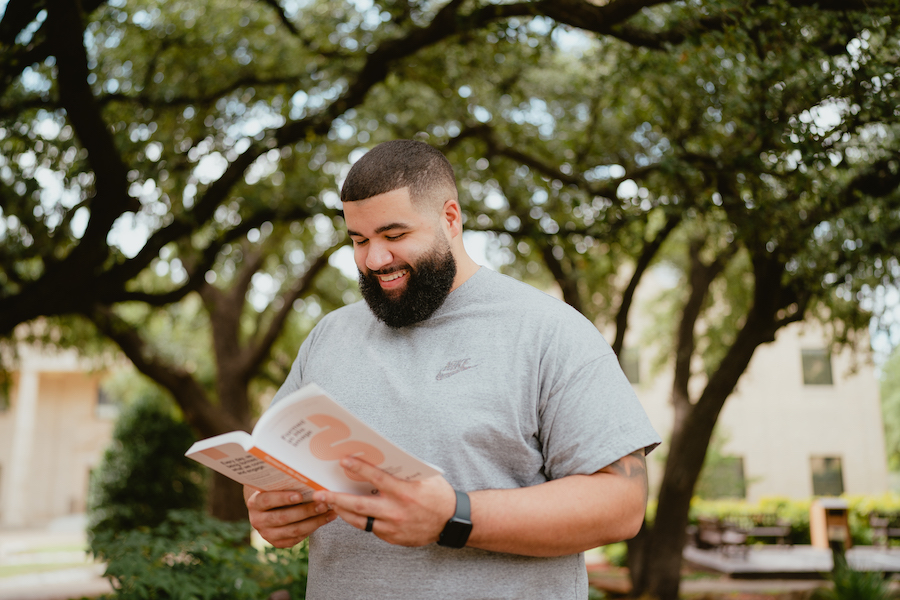Southwestern Seminary student uses skills, learns lessons ministering to Ukrainians
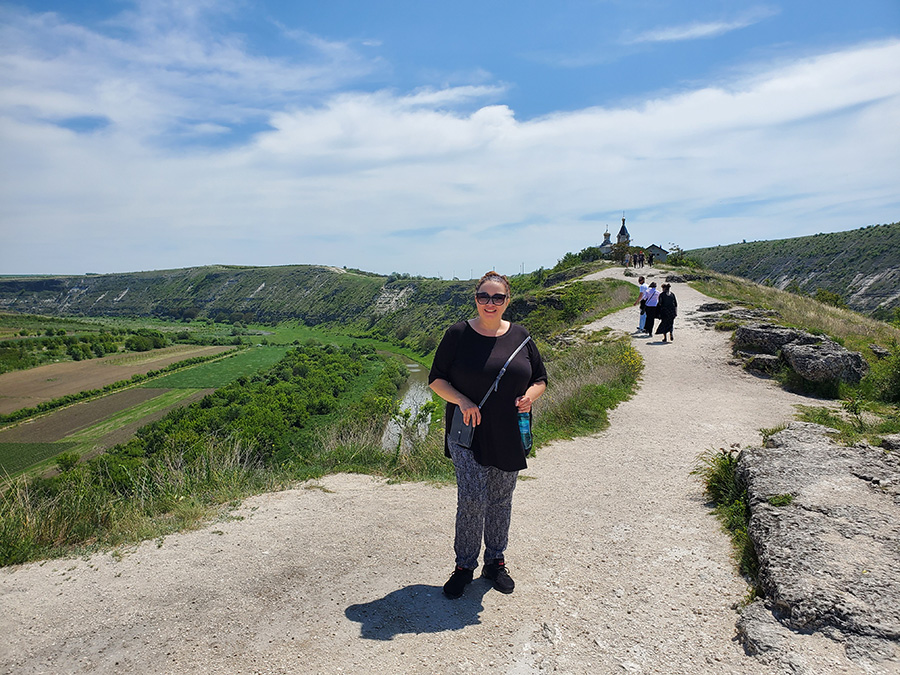

The young lawyer – just a few weeks away from the birth of her child – had fled her war-torn native Ukraine alongside her mother. At a refugee camp in the neighboring country of Moldova is where Sara Noland met the young mom, now holding her three-week-old daughter.
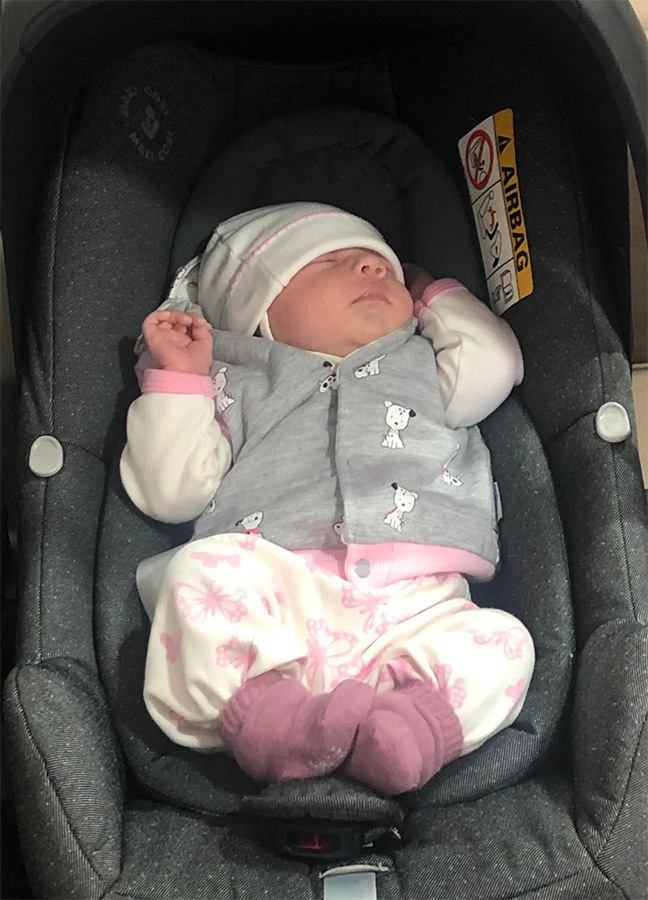
Noland, a Master of Theological Studies student at Southwestern Baptist Theological Seminary, was part of a 10-day mission trip organized by Send Relief and MedAdvance of the International Mission Board that sought to minister to displaced Ukrainians who had found refuge in Moldova.
However, serving alongside a team of nine doctors, nurses, pharmacists, and nursing students through the Moldovan mission trip was not what Noland was originally searching for as she combed through mission trip opportunities on the IMB website. Noland was looking for a trip that would allow her to minister to deaf and hearing-impaired persons. Noland’s husband, David, a Master of Divinity student at Southwestern, is partially deaf and she wanted to use her sign-language skills to serve overseas. Her search led her to a trip for people “one year removed from high school.”
Noland and David have four adult children and, as she explains, she was “obviously not” within the age parameters. Not finding an option that fit her current life stage and skill set, Noland completed a form on the IMB’s website requesting contact about any future mission trips working with deaf people and the hearing impaired. She provided more information about herself, including the training she has in biblical counseling.

Within a couple of days, Noland says she received a call from IMB personnel letting her know of the need of a counselor to join a MedAdvance team seeking to minister to Ukrainian refugees in Moldova. Sensing that “God had called” her for the ministry opportunity, Noland left for the Moldovan capital city of Chisinau two days after receiving her biblical counseling certificate at Southwestern Seminary’s May 6 commencement ceremony.
As she served with the other members of her team, Noland used her biblical counseling skills to minister in the Moldovan cities of Baltata, Bozieni, Ceadir-Lunga, Rezina, and the country’s capital city.
Noland explains each day the team would depart from the mission house in Chisinau and travel to one of the cities to minister at a location that followed the same basic ministry set-up. The team used three rooms – one for intake, one for pharmacy, and one for counseling. Working through translators, Noland began to provide counseling to those who have endured “so much hurting” and “uncertainty” since Russia invaded Ukraine early in the morning hours on February 24.
At a repurposed children’s camp in Baltata, a Moldovan city approximately 37 miles from the shared border with Ukraine, Noland met an “overwhelmed” grandmother who traveled with her daughter-in-law and five-year-old granddaughter as they sought to escape war-torn Ukraine. The trio had to leave behind their son, husband, and father as men between the ages of 18 and 60 must remain in Ukraine to fight under orders issued by Ukrainian President Volodymyr Zelenskyy.
Noland says she recognized early in the trip that “there are no words” that could easily be shared with people who had endured so much, however, she asked the people she encountered, “Do you know Jesus?” She would then explain how they could find hope through Jesus.
Recognizing the Russian Orthodox background many Ukrainians have, Noland said many of the people she encountered “know who Jesus is” but “they don’t have a relationship with Him.”
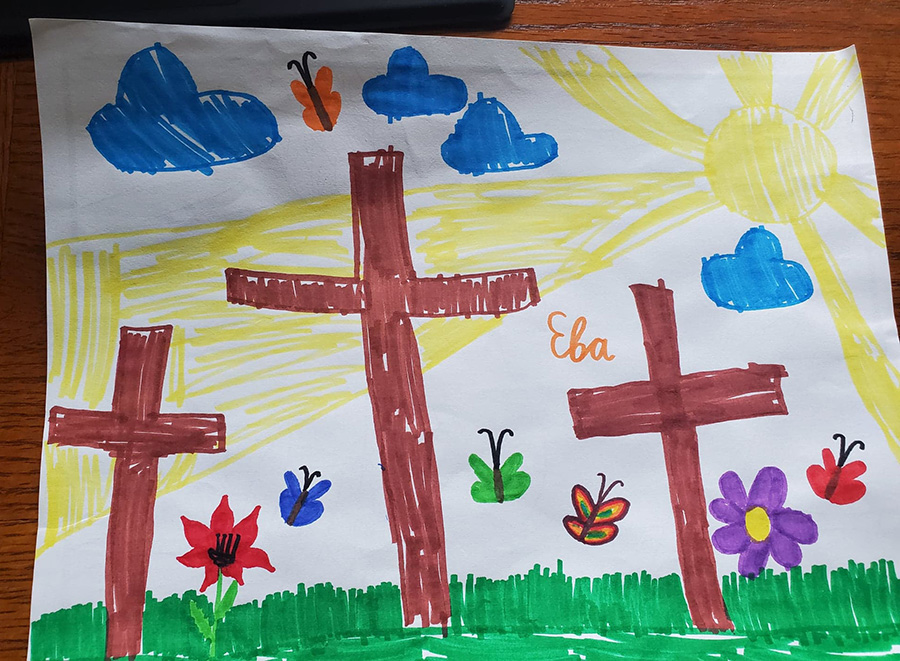
While some didn’t have a relationship with Christ, others did and had experienced persecution for their faith.
In an office set-up with “soothing piano Christian music” and an “assortment of playdough, coloring books, colored pencils, markers, paints” and other items, Noland spoke with an eight-year-old girl who had been “persecuted at school for being a Christian.” When Noland asked her, “What makes you happy?” the small child began to draw three crosses. Upon Noland asking her to explain the picture, the girl told Noland the Gospel story of God sending His Son, Jesus – a “precious moment,” she says.
Noland also met with a mother and her eight-year-old son and four-year-old daughter who had seen and experienced horror. She explains the children were “talking about the planes they saw flying over and loud bombs and bullets.” In order not to give away their location in Ukraine, the family lived in darkness in their home until they traveled to Moldova by car. The family told Noland they had “threats from soldiers.” They also told her about the “shooting of all of the cars when people tried to escape” and how the soldiers “would just riddle the cars with bullets.”
When the family was caught in the line of cars exposed to the gunfire, a “Ukrainian tank blocked the fire and 15 cars were able to get out,” Noland explains. “They were one of the 15.”
Noland prayed with the family and, through her translator, spoke the names of the children again. The four-year-old girl said, “Poppy,” wanting Noland to pray for her dad who had to remain in Ukraine, she said.
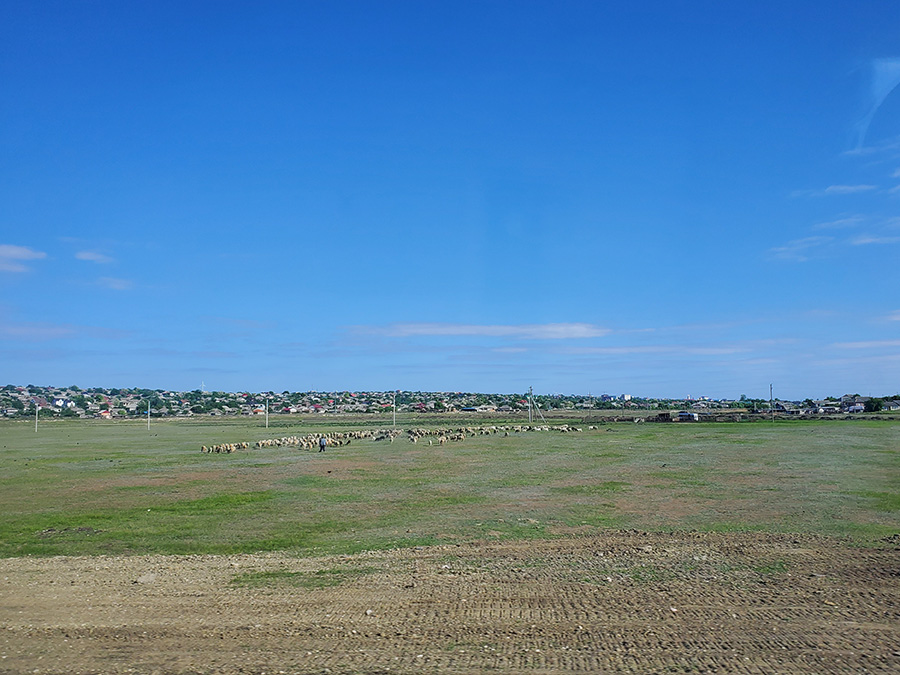
As Noland traveled with the mission team across Moldova, the settings for ministry in other parts of the nation included churches, businesses, and the homes of individuals in the villages that dot the landscape of the country known for its rolling hills, sheep, vegetation, and sunflowers.
Moldova, like its Ukraine neighbor, was part of the former Soviet Union and under Soviet reign experienced religious persecution. Home to approximately 2.6 million people, the tiny Eastern European country shares geographic borders with Romania and Ukraine and is the poorest country in Europe. However, the hospitality of the people, despite lacking money and material goods, was evident as Noland observed the Moldovans “do not have anything, but they were willing to give everything.”
Cots with donated mix-matched blankets and pillows – “nothing elaborate, but very comfortable” – were given by Moldovan families to help provide comfort to Ukrainian refugees, Noland says.
“The Moldovans gave their all to these people to allow them to stay with them when they had nothing,” Noland observes. “And they did it with a smile. It was joyful for them to be able to do that and it’s just so refreshing to see.”
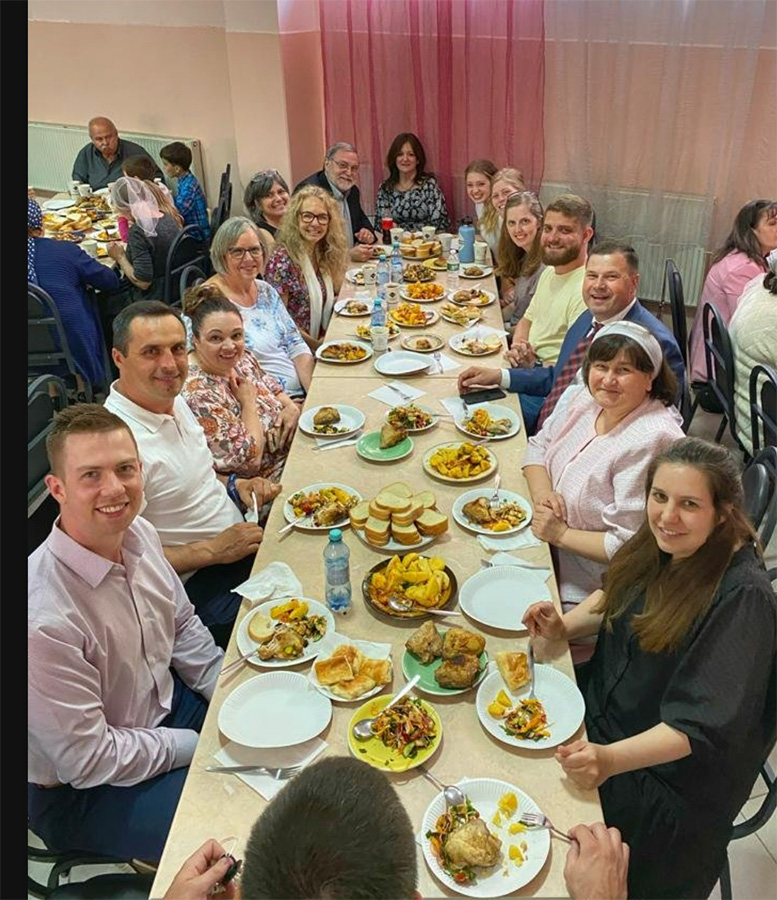
Noland says the experiences and stories from her trip – both ministering to the Ukrainian refugees and learning from the Moldovans – will “forever change my life.”
She was inspired by the way the Moldovans “did not have freedom of religion for all of their lives and they did not have freedom of living for all of their lives. They are poor and they give everything. They know oppression yet they do not cower in their living and loving. This is so inspirational.”
More information on how to help Ukrainians through Send Relief can be found here.
